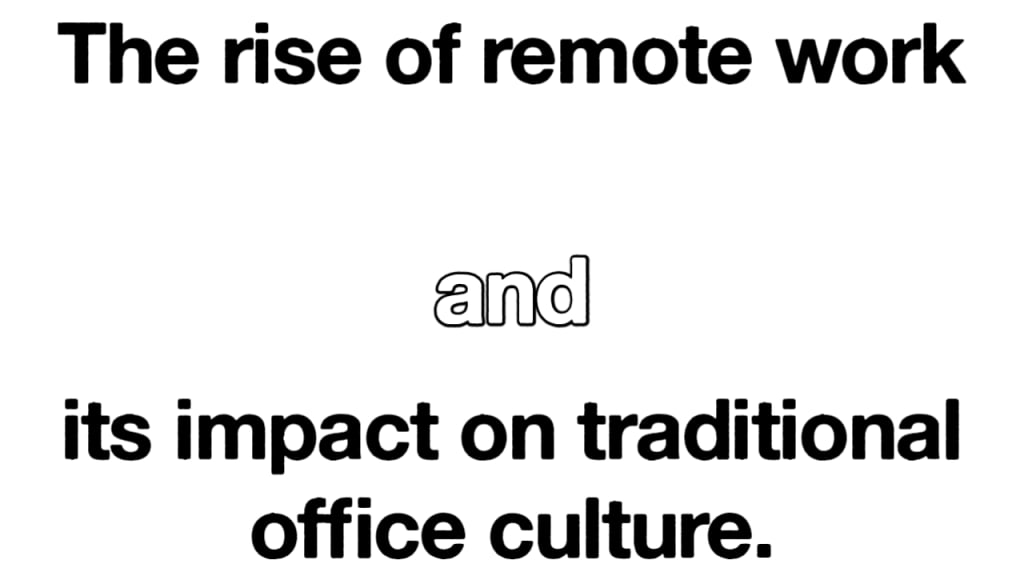
writing...Over the past few years, remote work has been on the rise. Advancements in technology and communication have made it possible for employees to work from anywhere in the world, breaking the traditional office culture. This shift has had a significant impact on the way we work, communicate, and collaborate with our colleagues. In this essay, we will explore the rise of remote work and its impact on traditional office culture.
First and foremost, remote work has changed the way we communicate. With the rise of digital communication tools, such as email, video conferencing, and instant messaging, employees can now communicate and collaborate with their colleagues from anywhere in the world. This has led to increased flexibility in the workplace and has made it easier for employees to balance their work and personal lives.
However, this shift towards remote work has also had a significant impact on traditional office culture. With employees working from different locations, the sense of community and teamwork that was once present in the office has been disrupted. Face-to-face interactions and personal relationships are becoming less common, which can lead to a lack of connection and a feeling of isolation among employees.
Another impact of remote work on traditional office culture is the shift towards a results-oriented work environment. In the traditional office, employees were often judged based on the number of hours they spent in the office, rather than the quality of their work. However, with remote work, employees are judged more on the results they deliver rather than the amount of time they spend in the office. This has led to a greater focus on productivity and output, rather than the number of hours worked.
One of the biggest advantages of remote work is the increased flexibility it provides to employees. With the ability to work from anywhere, employees can better balance their work and personal lives. This has led to an increase in job satisfaction and a decrease in stress levels. It has also allowed employees to work at times when they are most productive, rather than being confined to the traditional 9-5 workday.
However, this increased flexibility has also led to some challenges. With employees working from different locations and at different times, it can be difficult to coordinate schedules and ensure everyone is on the same page. This can lead to miscommunications and a lack of clarity around project timelines and goals.
Another challenge of remote work is the potential for employees to feel disconnected from their colleagues and the company culture. Without the traditional office environment, employees may not have as many opportunities to build personal relationships with their colleagues or to participate in company events and activities. This can lead to a lack of engagement and a feeling of disconnection from the company's mission and values.
In conclusion, the rise of remote work has had a significant impact on traditional office culture. While it has provided employees with increased flexibility and a results-oriented work environment, it has also disrupted the sense of community and teamwork that was once present in the office. As remote work continues to grow, it is important for companies to find ways to balance the benefits of remote work with the need for personal connections and a strong company culture. By embracing digital communication tools, building personal relationships with colleagues, and fostering a sense of community, companies can create a remote work environment that is both productive and fulfilling for employees.specifically, the shift towards remote work has also had an impact on management styles. In the traditional office, managers were often focused on overseeing and controlling their employees' work, and were more likely to micromanage. However, with remote work, managers have had to adapt to a more hands-off approach, focusing on setting clear goals and expectations, and providing support and resources for their employees to achieve them.
This shift towards a more results-oriented management style has also





Comments (1)
Informative